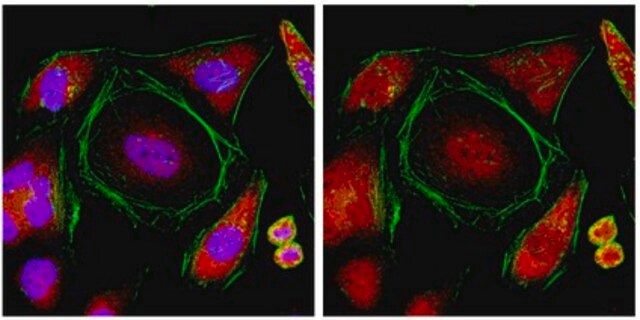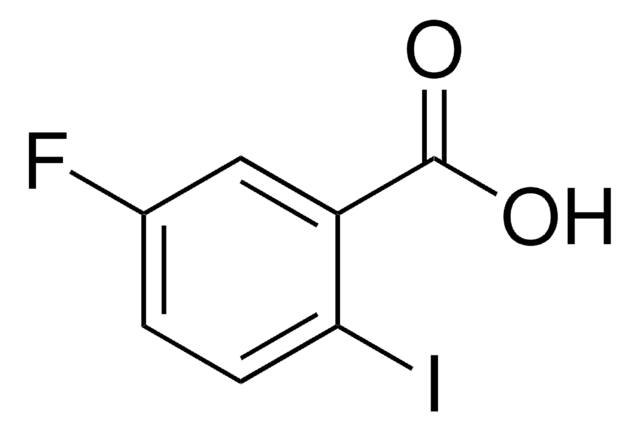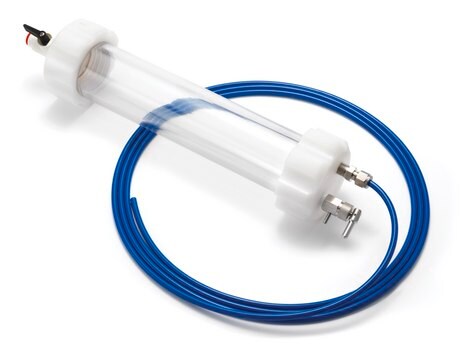MABE1919
Anti-TNRC6ABC Antibody, clone 7A9
clone 7A9, from rat
Synonyme(s) :
Trinucleotide repeat-containing gene 6A, 6B, and 6C, CAG repeat protein 26, EMSY interactor protein, GW182 autoantigen, Protein GW1, Glycine-tryptophan protein of 182 kDa
About This Item
Produits recommandés
Source biologique
rat
Forme d'anticorps
purified immunoglobulin
Type de produit anticorps
primary antibodies
Clone
7A9, monoclonal
Espèces réactives
human
Conditionnement
antibody small pack of 25 μg
Technique(s)
immunofluorescence: suitable
immunoprecipitation (IP): suitable
western blot: suitable
Isotype
IgG2aκ
Numéro d'accès NCBI
Modification post-traductionnelle de la cible
unmodified
Informations sur le gène
human ... TNRC6B(23112)
Description générale
Spécificité
Immunogène
Application
Immunoprecipitation Analysis: A representative lot immunoprecipitated TNRC6ABC in Immunoprecipitation applications (Quevillon Huberdeau, M., et. al. (2017). EMBO J. 36(14):2088-2106).
Epigenetics & Nuclear Function
Qualité
Western Blotting Analysis: 4 µg/mL of this antibody detected TNRC6 in lysate from stably induced HEK 293 cells transfected with TNRC6A, but not in uninduced HEK 293 cells.
Description de la cible
Forme physique
Stockage et stabilité
Autres remarques
Clause de non-responsabilité
Vous ne trouvez pas le bon produit ?
Essayez notre Outil de sélection de produits.
Code de la classe de stockage
12 - Non Combustible Liquids
Classe de danger pour l'eau (WGK)
WGK 1
Point d'éclair (°F)
Not applicable
Point d'éclair (°C)
Not applicable
Certificats d'analyse (COA)
Recherchez un Certificats d'analyse (COA) en saisissant le numéro de lot du produit. Les numéros de lot figurent sur l'étiquette du produit après les mots "Lot" ou "Batch".
Déjà en possession de ce produit ?
Retrouvez la documentation relative aux produits que vous avez récemment achetés dans la Bibliothèque de documents.
Notre équipe de scientifiques dispose d'une expérience dans tous les secteurs de la recherche, notamment en sciences de la vie, science des matériaux, synthèse chimique, chromatographie, analyse et dans de nombreux autres domaines..
Contacter notre Service technique





